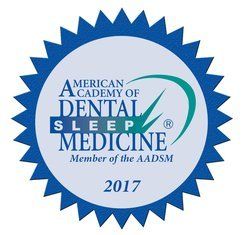Snoring Treatment In The Woodlands, TX

Here's Why You Snore
Connection Between Snoring and Sleep Apnea
Our Approach to Treating Snoring
Snoring and OSA are both are treatable conditions. Surgery is usually recommended when anatomical problems are causing excessive snoring and OSA. Lifestyle changes such as quitting smoking and losing weight can help. Oral appliance therapy provided by Dr. Katherine Phillips, which may be used alone or in conjunction with lifestyle changes, involves wearing a custom-made device similar to a sports guard while you sleep.
These appliances hold the lower jaw forward just enough to keep the airway open and prevent the tongue and muscles in the upper airway from collapsing and blocking the airway.
Another sleep apnea treatment option is using a CPAP (continuous positive airway pressure) machine. Although CPAP treatment is effective, many people cannot tolerate wearing a CPAP and become non-compliant or abandon using it altogether. Dr. Katherine Phillips patients who are good candidates for oral appliance therapy prefer it over CPAP for its comfort, convenience, and effectiveness.
Answering Your Snoring Related FAQs
-
Does everyone snore?
Up to 45 percent of adults will snore at some point in their lives. And it is estimated that around 10 percent of children snore on most nights .
-
When does snoring need to be treated?
When snoring becomes frequent and begins to affect your quality of life and your health, and interferes with your sleep and your partner’s ability to sleep, it’s time to determine what is causing you to snore and to seek a solution.
-
Is snoring dangerous or life threatening?
When it’s related to obstructive sleep apnea, snoring is a serious condition that may lead to a variety of chronic medical conditions. It raises the risk of type 2 diabetes, high blood pressure, heart disease, and others, and may even lead to death.
-
Are there any “home remedies” to reduce snoring?
Lose weight. Avoid drinking alcohol three to four hours before going to sleep. If you have seasonal allergies, talk with your physician about taking over-the-counter allergy medication. Instead of sleeping on your back, try sleeping on your side or elevate your head with an extra pillow to help prevent collapsing in the back of the throat.
-
Is snoring genetic?
To some extent. A study cited by the National Institutes of Health concludes that there is an overall strong association between habitual snoring and family history of snoring.
-
Do men snore more than women?
Men are twice as likely to snore as women, possibly due air way anatomy, lifestyle choices, and fat distribution. When men gain weight, it is usually in the neck, upper torso and abdomen compared to women who tend to gain in the hips, abdomen, and thighs.
-
How can I tell if I snore?
If you don’t live or sleep with someone who can tell you if you snore, download one several smartphone apps, such as SnoreLab. They track when and how loudly you snore and allow playback audio.
Contact Restore TMJ in The Woodlands for a Snoring Treatment Consultation
Contact Us
Thank you for reaching out to us at REstore TMJ and Sleep Therapy. We look forward to helping you. We will follow up within 24 hours for contact requests received during normal office hours Monday – Thursday. If you have submitted a request later in the day on Thursday – Sunday, we will follow up on Monday. If you would like to talk to us before we can get to your request, please feel free to give us a call at 281-296-6797 Monday – Thursday 8am – 4:30pm. Have a great day!
Regards,
Dr. Katherine Phillips and Staff
Please try again later.
REstore TMJ & Sleep Therapy P.A.
1001 Medical Plaza Drive,
Suite 200 | The Woodlands, TX 77380
281-296-6797
Dr. Phillips serves TMJ & Sleep patients in: The Woodlands TX | Spring TX | Conroe TX Tomball TX | Cypress, TX | Houston, TX | Kingwood TX | Humble, TX | Katy TX
© 2023 by REstore TMJ & Sleep Therapy | Terms Of Service & Privacy Policy | XML Sitemap
-2700x842-1920w.png)






